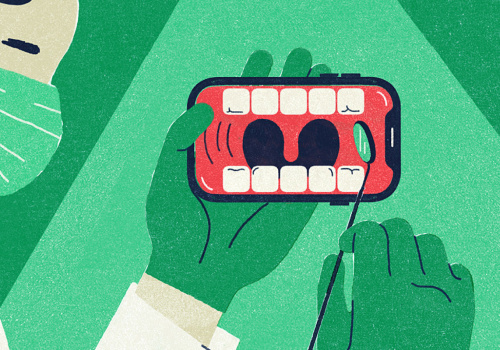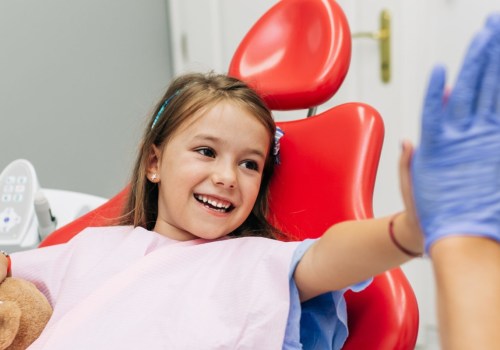How to Make Dentistry Fun for Kids?
Introduction
Visiting the dentist can be an intimidating experience for kids, but it doesn't have to be! By making dentistry fun, parents and dental professionals can create a positive environment that encourages children to maintain good oral health habits. In this article, we will explore effective strategies to make dentistry enjoyable for kids.
1. Choose a Kid-Friendly Dental Office
When selecting a dental office for your child, opt for a practice that caters specifically to kids. Look for waiting areas with vibrant colors, toys, and child-friendly decorations. A welcoming environment can help ease any anxiety your child may have.
2. Engage in Pretend Play
Pretend play is a great way to familiarize children with dental procedures. Encourage your child to play "dentist" with their stuffed animals or dolls. Provide them with a small dental kit, including a toothbrush, mirror, and dental mask. This interactive play allows children to become more comfortable with the tools used during dental visits.
3. Use Positive Reinforcement
Positive reinforcement can work wonders in making dentistry fun for kids. Praise your child for good oral hygiene practices and their bravery during dental visits. Consider creating a reward system, such as a sticker chart, where your child can earn rewards for consistent brushing and flossing habits.
4. Incorporate Educational Resources
Utilize educational resources to teach kids about oral health in a fun and engaging way. Look for children's books or online videos that explain the importance of brushing, flossing, and visiting the dentist. These resources can help children understand the value of good oral hygiene practices.
5. Make Dental Visits Interactive
During dental visits, encourage your child to ask questions and actively participate in the process. Request that the dentist or dental hygienist explain each step of the examination or treatment in a kid-friendly manner. This involvement helps alleviate fear and makes the experience more enjoyable.
6. Offer Distractions
Distractions can be helpful in diverting a child's attention from dental procedures. Bring along their favorite toy, book, or music player to keep them engaged. Some dental offices even have TVs on the ceiling, allowing kids to watch their favorite shows during treatment.
7. Organize Dental-themed Activities
Organize dental-themed activities at home or in school settings to make learning about oral health enjoyable. Create a "toothbrushing challenge" where kids compete to see who can brush their teeth the longest or create artwork related to dental health. These activities make oral hygiene fun and reinforce its importance.
8. Implement a Friendly Dental Team
A friendly dental team can make a significant difference in a child's dental experience. Choose a dentist and staff who specialize in pediatric dentistry and have experience working with children. These professionals should have a gentle and patient approach to make the child feel at ease.
9. Use Child-Friendly Language
When discussing dental procedures, use language that children can understand. Avoid using technical terms that may confuse or frighten them. Instead, explain things in a simple and positive manner to ensure they feel comfortable and well-informed.
10. Celebrate Milestones
Celebrate important milestones in your child's oral health journey. Whether it's losing their first tooth or completing a cavity-free dental check-up, acknowledge their achievements and make it a special occasion. Small celebrations and rewards can motivate children to continue practicing good oral hygiene habits.
FAQs
Q: How often should children visit the dentist?
A: It is recommended that children visit the dentist every six months for regular check-ups and cleanings.
Q: What can I do if my child is afraid of the dentist?
A: Encourage open communication with your child and express their fears to the dental team. Dentists can offer techniques such as desensitization or dental sedation to help anxious children feel more comfortable.
Q: At what age should a child start brushing their teeth?
A: Parents should start brushing their child's teeth as soon as the first tooth emerges, typically around six months of age.
Choose a Kid-Friendly Dental Office
Look for a dental office that caters specifically to children. These offices are often designed with vibrant colors, child-friendly decorations, and play areas. The welcoming environment will help your child feel comfortable and at ease.
Introduce Pretend Play
Pretend play can be an effective way to familiarize your child with dental procedures. Encourage them to play "dentist" with their toys, using a toothbrush, mirror, and dental mask. This interactive play allows them to become more comfortable with the tools and procedures involved in dental visits.
Positive Reinforcement
Offer praise and rewards to motivate your child to maintain good oral hygiene habits. Create a sticker chart or reward system where they can earn incentives for brushing and flossing regularly. Positive reinforcement will make dental care more enjoyable and encourage them to continue their efforts.
Utilize Educational Resources
Use educational resources such as children's books or online videos to teach your child about oral health in a fun and engaging way. These resources can explain the importance of brushing, flossing, and visiting the dentist, while making it enjoyable and relatable.
Make Dental Visits Interactive
During dental visits, encourage your child to actively participate in the process. Let them ask questions and have the dentist or dental hygienist explain each step in a child-friendly manner. This involvement will help alleviate their fears and make the experience more enjoyable.
Provide Distractions
Bring along their favorite toy, book, or music player to distract your child during dental procedures. Some dental offices have TVs or tablets that allow children to watch their favorite shows or movies. These distractions help shift their focus away from any discomfort or anxiety.
Organize Dental-themed Activities
Create dental-themed activities at home or in school settings. Organize a "toothbrushing challenge" where children compete to see who can brush their teeth the longest. You can also engage them in creating artwork related to dental health. These activities make oral hygiene fun and reinforce its importance.
Friendly Dental Team
Choose a dentist and dental staff who specialize in working with children. They should have a gentle and patient approach to make your child feel at ease. A friendly dental team will help create a positive and comfortable environment for your child's dental visits.
Child-Friendly Language
When discussing dental procedures, use language that your child can understand. Avoid using technical terms that may confuse or frighten them. Explain things in a simple and positive manner to ensure they feel comfortable and well-informed.
Conclusion
Making dentistry fun for kids is crucial for fostering positive oral health habits. By implementing strategies such as choosing a kid-friendly dental office, engaging in pretend play, and offering positive reinforcement, parents and dental professionals can create an enjoyable dental experience for children. Remember to use child-friendly language, incorporate educational resources, and celebrate milestones to make dentistry a positive and exciting part of a child's life.
By following these tips, you can help alleviate any anxiety or fear your child may have about visiting the dentist. Remember that each child is unique, so it's important to tailor your approach to their individual needs and preferences. With a little creativity and patience, you can transform dental visits into fun and memorable experiences that promote lifelong oral health.
Start implementing these strategies today and watch as your child develops a positive attitude towards dentistry. Remember, the key is to make oral health a priority while keeping it enjoyable and engaging. By setting the foundation for good oral hygiene practices early on, you are setting your child up for a lifetime of healthy smiles.
Visiting the dentist can be a daunting experience for kids. However, with a little creativity and preparation, you can make dentistry a fun and positive experience for your child. By implementing the following strategies, you can help alleviate any anxiety and foster a lifelong commitment to oral health.







